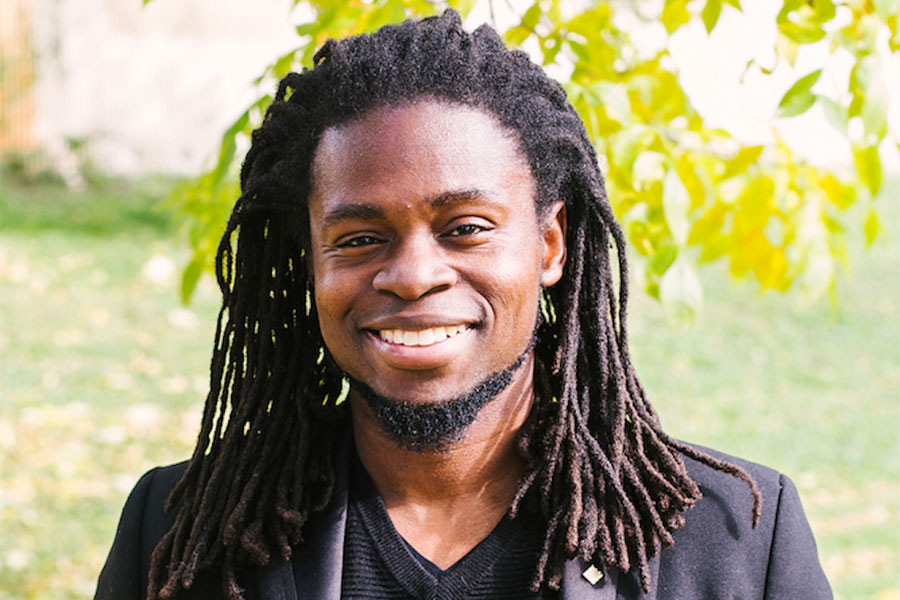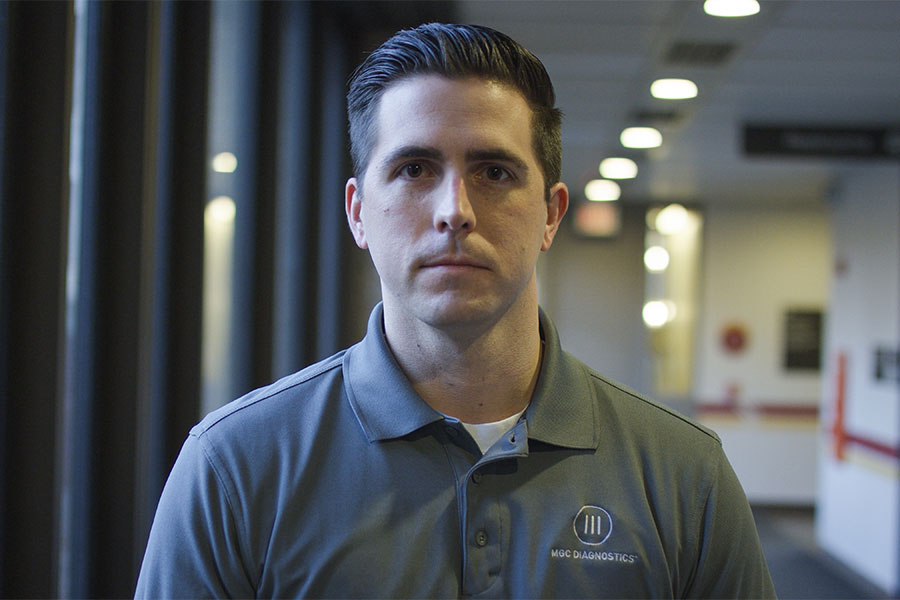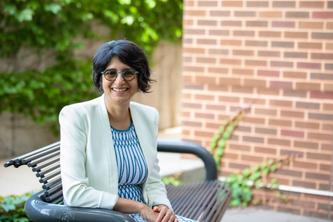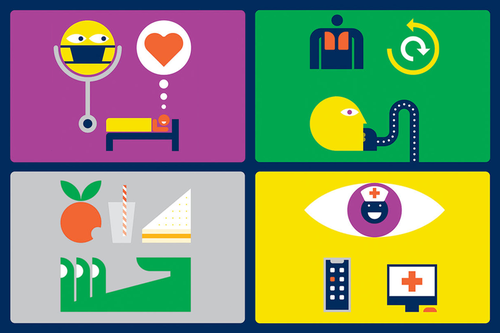
The COVID-19 pandemic shifted the pace and order of lives around the world. Several Carlson School of Management alumni exemplify the resiliency and determination helping to carry us through this challenging time, and their efforts are moving us toward a stronger, more connected, and more compassionate world.
Taking telemedicine to the next level
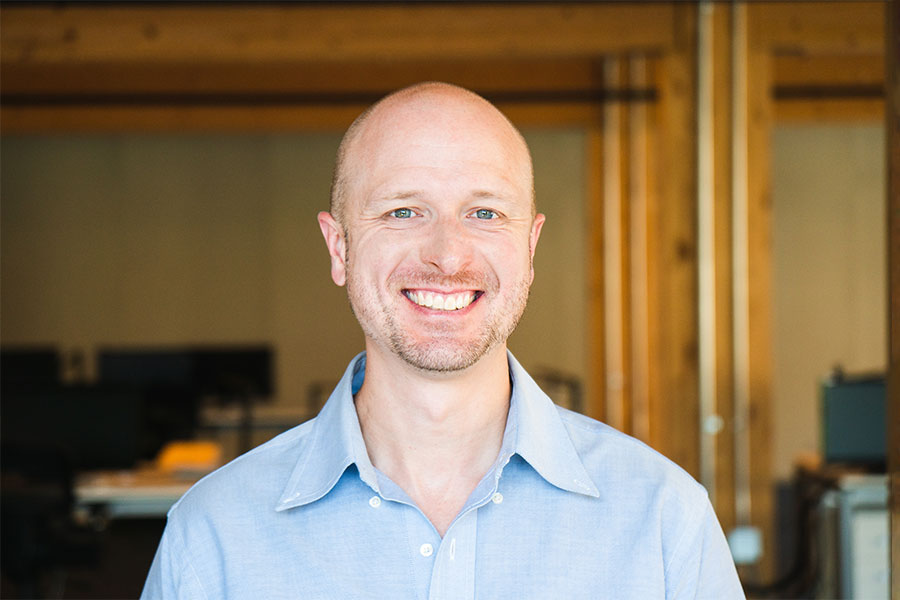
Telehealth is in the spotlight for its role in providing care during the coronavirus pandemic. Jon Pearce (MBA ’09), founder of Zipnosis, a care platform that powers virtual triage and visits for 51 large health systems across the country, is proving that a new model for virtual care can transform the future of healthcare.
Zipnosis saw an increase in use of 3,600 percent during the first 11 days of the COVID-19 crisis. While some telemedicine providers floundered with long wait times, the average wait time for a Zipnosis visit was just 10 minutes. And when the CDC issued guidance around screening for COVID-19, Zipnosis immediately implemented a COVID-19 protocol and unique screener, quickly collecting critical data for patients, providers, and policymakers.
When he started Zipnosis in 2009, Pearce’s belief in the potential for smart virtual care led him to leave his job at a medical technology startup to dive into telemedicine while also studying at the Carlson School. With each success, Pearce is validating what was once only a theory: that the right technology, deployed at scale, can revolutionize how healthcare is delivered.
“We scaled at historic rates in historic measure,” says Pearce. “We had intense moments, but the technology and the service withstood a historic stress test with an A-plus outcome when other methods didn’t.”
Feeding Minnesota's front line
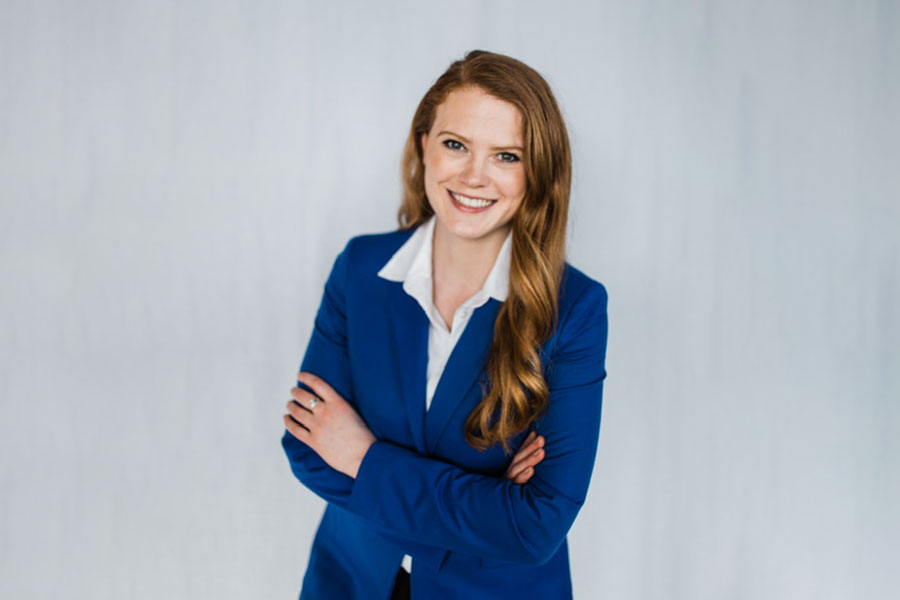
Like many other recent grads, Shannon Leach’s (MBA ’20) post-graduation plans look a lot different than she predicted. Fortunately, as a veteran of the notoriously fickle food industry, she was prepared to change course. So when fellow alumna Maggie Thomas told her about an opportunity to help launch a local chapter of Frontline Foods—an effort to deliver meals to hospital staff from local restaurants—she shifted her focus from job search to start-up mode.
Leach knew she’d need help on the marketing side and immediately thought of Lizzy Ullyot (MBA ’21), whom she had met through their mutual volunteer work. Ullyot was excited to use her skills to make a difference while learning more about the food industry.
“I have always wanted to go into consumer-packaged goods,” says Ullyot. “Shannon and I have a lot of complementary skills, so this was an exciting way for me to jump in and contribute while getting to learn from her background in the food industry.”
The two applied for and received a Sands Fellowship and launched the Twin Cities chapter of Frontline Foods in April. They then fundraised and made connections with local restaurant owners and healthcare providers, eventually raising more than $93,000 and providing 6,800 meals purchased from 11 local restaurants to healthcare workers across Minnesota.
Leach recalls one community clinic that had set aside money to feed their staff. After receiving meals from Frontline, the clinic was able to re-allocate those dollars to address the needs of the organization.
Frontline also relieves pressure for restaurant owners who are trying to hold on as revenue slows.
Angelo Giovanis, CEO and head chef at The Naughty Greek, says working with Frontline kept him in business and gave him hope during a dark time.
“I will never forget the feeling I got when I saw the smiles on people’s faces when I was handing out food,” says Giovanis. “I felt human. Frontline made me feel human.”
Powering reliable primary care
“People should have the same level of access to quality primary care at the same cost, no matter what,” says Nice Healthcare CEO Thompson Aderinkomi (MBA ’11).
That belief in the importance of affordable, accessible primary healthcare for everyone led Aderinkomi and his co-founders to launch Nice Healthcare in 2017. The idea behind Nice is simple: Remove the complexity and intermediaries wherever possible and pass the cost savings on to the customer.
With Nice’s model, employers purchase a membership plan that offers their employees and dependents unlimited video visits, chat visits, home visits, and in-home labs and X-rays for less than a dollar a day with no out-of-pocket fees.
To keep overhead and administrative costs low, Nice forgoes having a clinic in favor of in-home visits and does not accept insurance. It’s not just about simplicity, however.
“We measure success by how the company affects the people it interacts with in the short term and the long term,” says Aderinkomi. “We’re not just trying to extract as much value as possible.”
While many clinics in the primary care sector have had to furlough or lay off employees, Nice’s model provides a more predictable and secure revenue stream, and thus more employment security.
While Aderinkomi remains focused on expanding the model he believes will improve access to affordable care, he hopes people will take a critical look at what else needs to change to make healthcare work better for more people.
“We need to ask, ‘Why is an industry that consumes 20 percent of our nation’s productivity laying people off?’” says Aderinkomi. “Where is that money going—and could we be spending it better?”
Developing a life-saving medical device within days
When Jim McGurran (MBA ’17) got a call from his lifelong friend, Dr. Steven Richardson, a cardiac anesthesia fellow at the University of Minnesota, about an idea for a low-cost, scalable mechanical ventilator to help patients with COVID-19, he was all in. Within 24 hours of the call, McGurran, a product development director at Minnesota–based medical technology company MGC Diagnostics, had his entire software team working on prototypes.
“When Steve called, I knew we had to get moving right away,” says McGurran. “We were facing a moment of unprecedented need and a very real threat to the healthcare system.”
McGurran’s previous involvement in the engineering and regulatory side of medical product development and his time in the Carlson School’s Medical Industry Leadership Institute (MILI) Valuation Lab equipped him to gather and understand the requirements and take action quickly.
“A lot of what I learned in the MILI Lab came into play in my approach to this opportunity,” says McGurran.
By March 17—just two days after his call with Richardson—McGurran’s team was ready to move the initial design to development and testing.
From there, other companies jumped in to help meet FDA requirements, and just a month after that first call, on April 14, the University of Minnesota gained FDA Emergency Use Authorization for their invention: the Coventor.
“If you had asked me before March if it was possible to design and scale a medical device for the market within a month, I would have said no,” says McGurran. “But I’m always amazed by how resilient, creative teams can collaborate to solve problems.”
-------
- Categories:
- Business and Management
